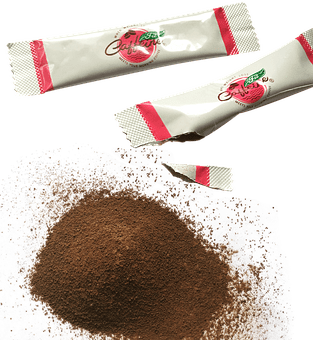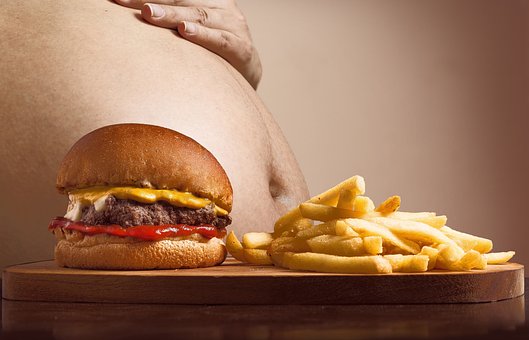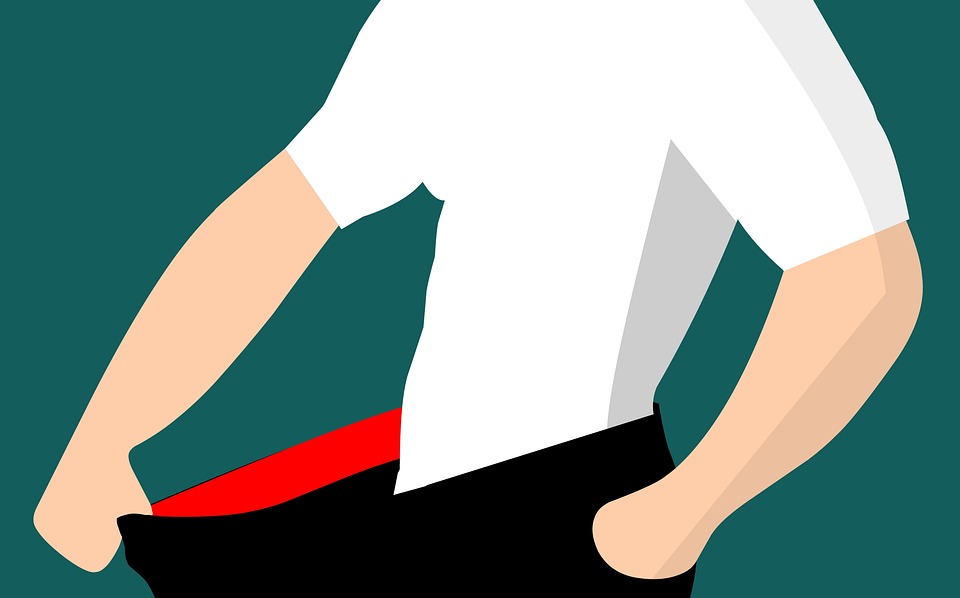
If you have ever viewed an ad for shedding pounds, you have heard repeatedly how trouble-free it is to slim down: simply take this supplement, adhere to that eating regimen, or acquire this fitness machine, and the fat will disappear as if by magic. Vast sums of money are used up yearly on goods and services that help with weight reduction, but millions of people still suffer from obesity.
What’s the best diet for healthy weight loss?
Grab a diet plan manual and it will claim to contain all you need to effectively drop the weight you want and keep it off. Some assert that the solution is to consume fewer calories and engage in more activity, others insist that following a low-fat diet is essential, and some suggest eliminating carbs from one’s diet. So, what should you believe?
There is not a single answer that will work for everyone when it comes to achieving long-term healthy weight loss. Not everybody will have the same reaction to a particular food as it depends on how their body processes it due to genetic and health factors. It may take a while to discover what kind of weight loss plan is appropriate for you, requiring determination, stamina, and testing out disparate foods and diets.
Some people have success when they track and limit how many calories they eat, while others are more successful when they have more flexibility when developing their plan to lose weight. They can experience success by having the liberty to avoid fried foods or decrease the consumption of processed carbs. Don’t be disheartened if a dietary plan that was successful for another person does not work for you. Do not be too hard on yourself if a certain eating plan is too hard to maintain. In the end, the only diet that will be effective for you is one that you can remain on for the long haul.
Recollect: although there is no convenient solution to slimming down, a lot of matters you can do to generate a stronger connection with food, decrease psychological triggers that induce overeating, and ultimately reach a good body weight.
Four Popular Weight Loss Strategies
1. Cut calories
Some authorities contend that how to handle your weight effectively can be summed up in an uncomplicated way: If you take in fewer calories than you burn off, you will slim down. Sounds easy, right? Then why is losing weight so hard?
- Weight loss isn’t a linear event over time. When you cut calories, you may drop weight for the first few weeks, for example, and then something changes. You eat the same number of calories but you lose less weight or no weight at all. That’s because when you lose weight you’re losing water and lean tissue as well as fat, your metabolism slows, and your body changes in other ways. So, in order to continue dropping weight each week, you need to continue cutting calories.
- A calorie isn’t always a calorie. Eating 100 calories of high fructose corn syrup, for example, can have a different effect on your body than eating 100 calories of broccoli. The trick for sustained weight loss is to ditch the foods that are packed with calories but don’t make you feel full (like candy) and replace them with foods that fill you up without being loaded with calories (like vegetables).
- Many of us don’t always eat simply to satisfy hunger. We also turn to food for comfort or to relieve stress—which can quickly derail any weight loss plan.
2. Cut carbs
An alternate look at weight loss does not center around eating too many calories, but rather how the body stores fat after eating carbohydrates—particularly how insulin affects the process. When you consume a meal, the carbohydrates in the food become glucose in your blood. Your body utilizes the glucose from a meal before burning any fat in order to maintain your blood sugar levels.
If you eat food high in carbohydrates (such as pasta, rice, bread, or fries), your body will create insulin to help cope with the rise of glucose in your bloodstream. Aside from balancing out blood sugar levels, insulin performs two more roles: It stops fat cells from liberating fat that can be used for energy (as glucose is a priority for burning first), and increases the amount of fat cells that are created for storing energy your body can’t use. You end up packing on the pounds because your body needs extra energy to burn, causing you to have a larger appetite. Since insulin only burns carbohydrates, a craving for carb-rich food is generated, sparking a repeated and negative pattern of eating the food and becoming overweight. The idea is that in order for you to slim down, you need to disrupt this cycle by lowering the amount of carbs you consume.
Low-carb diets generally suggest substituting carbohydrates with protein and fat; however, this could be detrimental to your health in the end. If you experiment with a low-carb diet, you can make it healthier by consuming lean meats, fish, vegetarian proteins, dairy with reduced fat, and incorporating leafy greens and non-starchy vegetables in abundance within your diet – this minimizes your exposure to saturated fats and trans fats.
3. Cut fat
Eating fat is a regular part of many eating plans; to avoid gaining weight, it’s best to stay away from fatty foods. If you stroll through any grocery store aisle, you will be overwhelmed by the abundance of low-fat treats, dairy items, and microwaveable meals. Despite the vast amount of low-fat options available, the number of people classified as obese has also grown significantly. Why have low-fat eating plans not had better success rates among a larger portion of the population?
- Not all fat is bad. Healthy or “good” fats can actually help to control your weight, as well as manage your moods and fight fatigue. Unsaturated fats found in avocados, nuts, seeds, soy milk, tofu, and fatty fish can help fill you up, while adding a little tasty olive oil to a plate of vegetables, for example, can make it easier to eat healthy food and improve the overall quality of your diet.
- We often make the wrong trade-offs. Many of us make the mistake of swapping fat for the empty calories of sugar and refined carbohydrates. Instead of eating whole-fat yoghurt, for example, we eat low- or no-fat versions that are packed with sugar to make up for the loss of taste. Or we swap our fatty breakfast bacon for a muffin or donut that causes rapid spikes in blood sugar.
4. Follow the Mediterranean Diet
The Mediterranean diet involves consuming beneficial fats and carbohydrates, lots of fruits and vegetables, nuts, fish and olive oil, as well as small quantities of meat and cheese. It’s not just about the food with the Mediterranean diet. Engaging in frequent physical activity and spending time with others while eating are also important parts of the picture.
It’s essential to remain committed to your program and prevent typical dieting errors, like emotional eating, when attempting any kind of weight loss plan.
Why Is It So Hard to Lose Weight?
The design of your body is to retain as much fat as it can for when food may not be available. That makes losing weight difficult for most people. The components that come into play are heredity, age, race and culture, eating habits, workout, hormones, and societal situations.
If you have difficulty shedding pounds, you understand that there are no simple solutions. A successful tactic for shedding pounds is to expend more calories than you consume. As easy as that sounds, it usually isn’t. It’s not only a matter of dedicating your moments to physical activity or consciously selecting the lighter meal; it is about making a real dedication to your wellness day in and day out even with life’s highs and lows. To achieve your goal, you must consider the following 6 points to lead you to start a successful weight loss journey.
Your Attitude
If you’re only adopting a healthier lifestyle for the purpose of slimming down or achieving a certain physical appearance, it will be difficult to keep the weight off long-term. Losing weight is an admirable objective, but try to come up with another motivation to keep you on track.
Gaining results when it comes to weight loss takes some time, so it’s important to keep yourself motivated throughout the process. Explore additional incentives to maintain good health. Take the time to recall all the advantages that exercising offers, like more vigor, higher spirits, and a better quality of rest, for instance.
Make a record of your physical activity and note each victory, regardless of whether you’re slimming down or not. Your mindset and how you view exercise are essential for keeping motivated. Nobody desires to carry out activities they perceive as miserable, so consider how you can shift your perspective and view exercise from a new angle.
Your Workouts
If you don’t exercise regularly, it can be difficult to slim down. You can certainly achieve weight loss just by adjusting your diet, however you may reach a point where progress stalls.
It is not necessary to spend a great deal of time in the gym; establishing an achievable exercise timetable that you can stick to every seven days will suffice. It’s not about pushing yourself to the extreme with exercise routines—it’s about locating something you have a fondness for and will stick with in the future.
This means that you should eliminate any exercises which you don’t feel comfortable with and shape your exercise program around the activities that give you pleasure, even if it doesn’t meet the set exercise guidelines. You must make a commitment to engage in more physical activity on a consistent basis and not just occasionally.
Your Diet
Altering your diet is something else you have to be devoted to if you want to sustain weight reduction. This implies striving to trade unhealthy food items with better decisions and performing that on the majority of occasions.
Some ideas to help include:
- Keeping a food journal
- Spending more time in the grocery store reading food labels
- Spending more time preparing meals
- Understanding proper portion sizes
- Making conscious choices about what you eat, rather than mindless eating
In order to achieve sustained weight loss, it is necessary to be mindful of what you consume and consistently opt for the healthier option. A diet with specific rules may come to an end, however healthy eating habits should always remain in place. In other words, lasting weight loss requires that you adhere to healthy eating habits indefinitely.
Ultimately, it’s not necessary to eliminate all the things that you take pleasure in. You can still have your preferred dishes, however not each day. One must be willing to examine their diet carefully, and gradually make changes to it in order to lower the amount of calories they consume.
Your Lifestyle
You have to be prepared to alter your lifestyle if you desire to have a healthy life. This means that you should not attempt to immediately adjust to all new things all at once; instead, be willing to try new methods. Among some things you might need to change for a healthier life:
- Break unhealthy daily routines. You may need to get up earlier to prepare your lunch or squeeze in a workout, use your lunch hour for exercise, or go for a walk instead of just sitting. People use a busy schedule as an excuse not to be healthy. Don’t fall prey to this trap.
- Watch how you spend your free time. You might need to set new rules for yourself limiting how much TV you watch or how long you sit at the computer. You’ll need to pay attention to how you spend your time and where you’re out of balance so you can add more movement.
- Clear your pantry of junk food. No matter how committed you are, having something unhealthy in front of your face is only going to make things harder. You have to set up your surroundings so they support your goals rather than sabotage them.
Your Environment
Sometimes you can’t control the things around you. When you’re at your job, there may be a variety of things around you that could lead to bad dietary decisions such as doughnuts, snack machines, and other people bringing unhealthy snacks. What about the situation at your residence?
Fill your life with things (and individuals) that will aid you in your attempt to become healthy.
It could involve purchasing some exercise tools for home, organizing a part of your home for exercise equipment, or taking over the television for a few nights a week in order to do a fitness video.
Create an atmosphere that promotes healthy decisions and serves as a reminder of them. Entering your kitchen and catching sight of a dish of newly picked fruit could serve as a reminder of your goals.
Your Unwillingness to Fail
You will not be perfect every day. This can be a tough pill to swallow for those who strive for perfection, however, it is a reality that not everything can be controlled.
On nice days, filling your plate with fruits and vegetables, declining pizza, and doing exercise even if tired are all part of the plan. On the days that are not so great, you may awake later than planned, neglect to take your lunch, indulge in an additional slice of cake at your buddy’s birthday celebration, or miss your exercise session.
Difficult moments will be experienced if you are human. The key is to persist, even if you make a mistake. Attempt to overcome your trepidation of not succeeding and recall that you are not a failure just because you make a few mistakes. You are doing your utmost to make wise choices.














